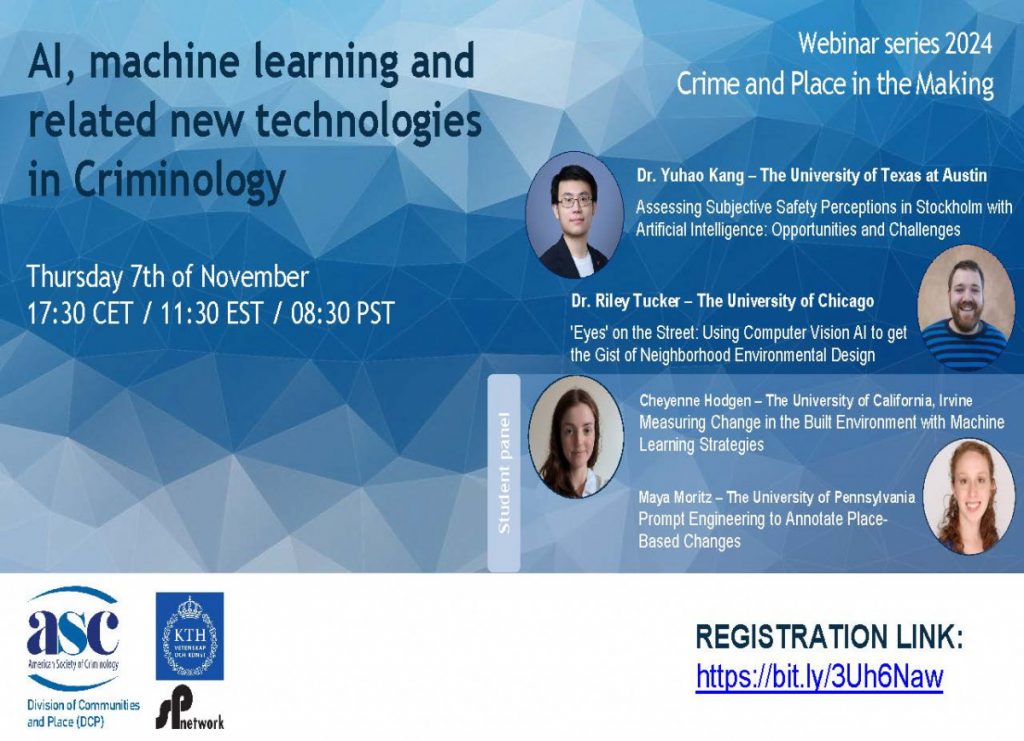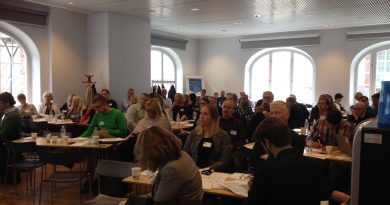Crime and Place in the Making Webinars 2024
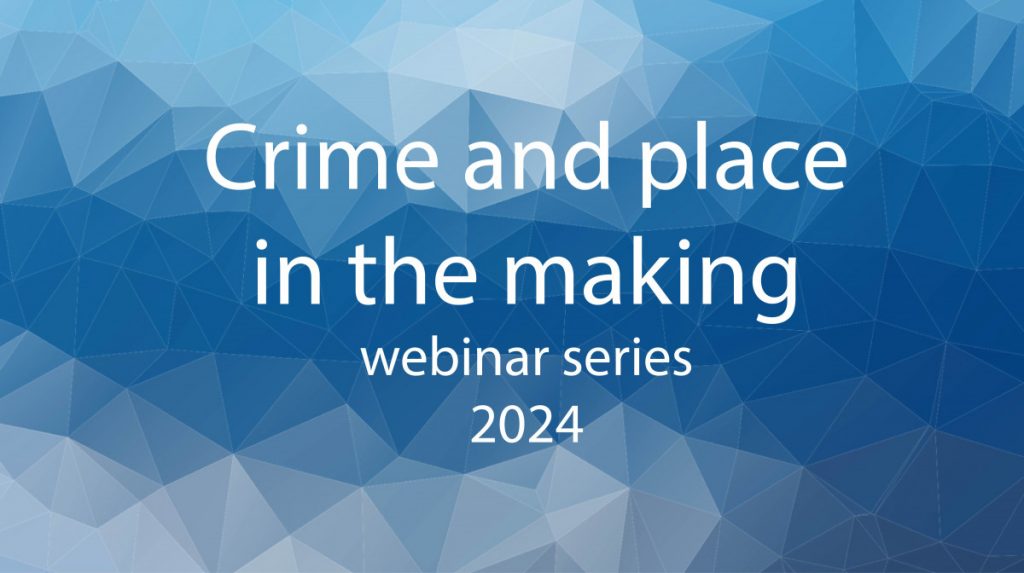
Welcome to ‘Crime and Place in the Making‘!
This webinar series features esteemed speakers, comprising both young minds and experienced researchers, focusing on diverse topics about crime, communities, and place in spatial, network, and temporal contexts. The series is an international collaboration between the American Society of Criminology’s Division of Communities and Place (DCP) and the Network Safe Places at KTH Royal Institute of Technology in Sweden. The inaugural 2024 series will run generally on Thursdays at 17:30 CET / 11:30 EST / 08:30 PST and will be accessible via zoom.
This webinar is a join initiative between Safeplaces Network and ASC Division of Community and Places.
Join us!
Previous webinars
AI, machine learning and related new technologies in Criminology
Dr. Yuhao Kang – The University of Texas at Austin
Dr. Riley Tucker – The University of Chicago
Cheyenne Hodgen – PhD candidate at University of California, Irvine
Maya Moritz – PhD candidate at University of Pennsylvania
This webinar session examines AI and machine learning applications for understanding safety perceptions, urban design, and environmental changes. Presentations include using street view images with AI to capture subjective safety perceptions, and computer vision to test crime prevention theories by linking neighborhood aesthetics to territorial behavior. Additional studies demonstrate machine learning’s potential for tracking long-term property development and optimizing annotation techniques for neighborhood characteristics, emphasizing the balance between cost and quality in place-based data analysis.
#3/ 5th of September 2024

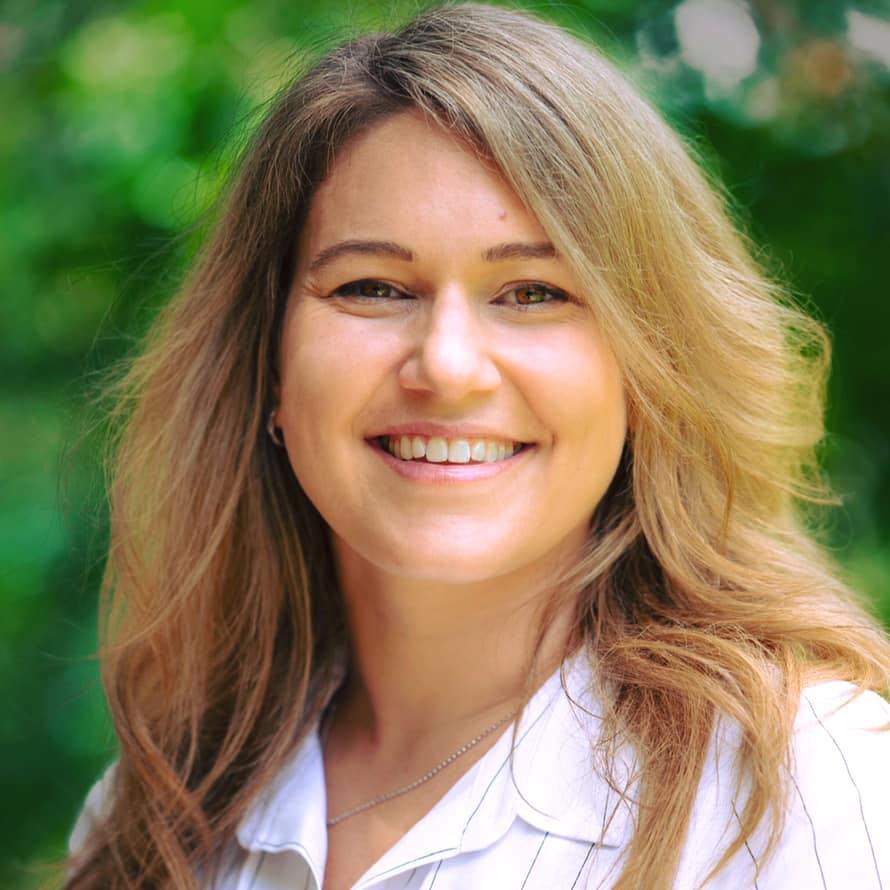
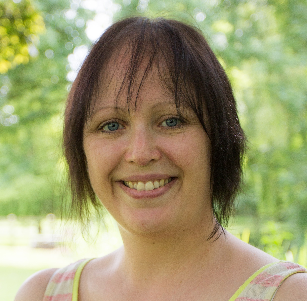

The Role of Space and Place in Rural Criminology
Prof Joe Donnermeyer / Ohio State University, USA
Dr Emmanuel Bunnei / the University of New England, Australia – Recording
Dr Kreseda Smith / Harper Adams University, UK
Dr Tarah Hodgkinson / Wilfrid Laurier University, Canada – Recording / Report 1 / Report 2
This webinar explores the critical role of space and place in rural criminology, emphasizing the unique opportunities and challenges of crime and policing in rural areas around the Globe. The discussion highlights how geographical isolation can hinder crime reporting and law enforcement response, while solid community ties in rural communities can deter and conceal criminal activities. Globalization, technological advancements, and changing economic trends influence the development of criminogenic conditions in space and time. They are imposing new challenges on the police and demanding new modes of crime prevention and policing. This webinar is structured around shared issues around the Globe, proposals for future research, and what current evidence means for practice.

As. Prof Tony Cheng
Assistant Professor of Sociology
Duke University
ett sammarbete mellan KTH Säkraplatser & ASC Division of community and places
The Policing Machine: Enforcement, Endorsements, & the Illusion of Public Input
The Policing Machine shows how police departments build community relationships and leverage the political capital gained through them to resist institutional reforms. It draws on ethnographic data on America’s largest police department, the NYPD, and concludes that the community relationships that already exist are precisely what is impeding police transformation.
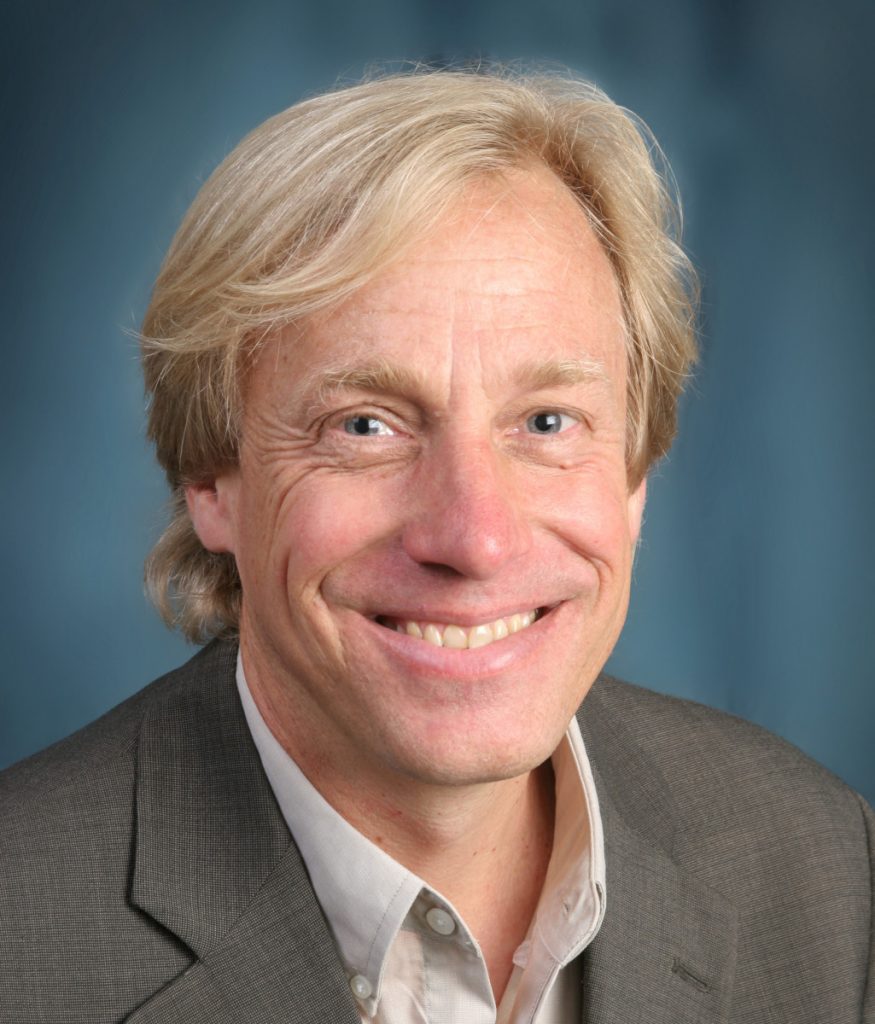
Prof John R. Hipp
Professor of Criminology, Law and Society,
Urban Planning and Public Policy and Sociology
University of California
ett sammarbete mellan KTH Säkraplatser & ASC Division of community and places
The Spatial Scale of Crime: Consequences for Ecological Studies of Crime
Although ecological studies of the location of crime have increasingly utilized smaller and smaller geographic units to explore research questions, this ever-smaller trend has certain limitations. Most notably, this trend encounters the challenge that people move about the landscape, posing a problem for a narrow geographic lens and has largely been ignored. A second limitation of this ever-smaller trend is a narrowing of research questions that are asked, or even can be asked. This is an unnecessary narrowing of the research paradigm.

